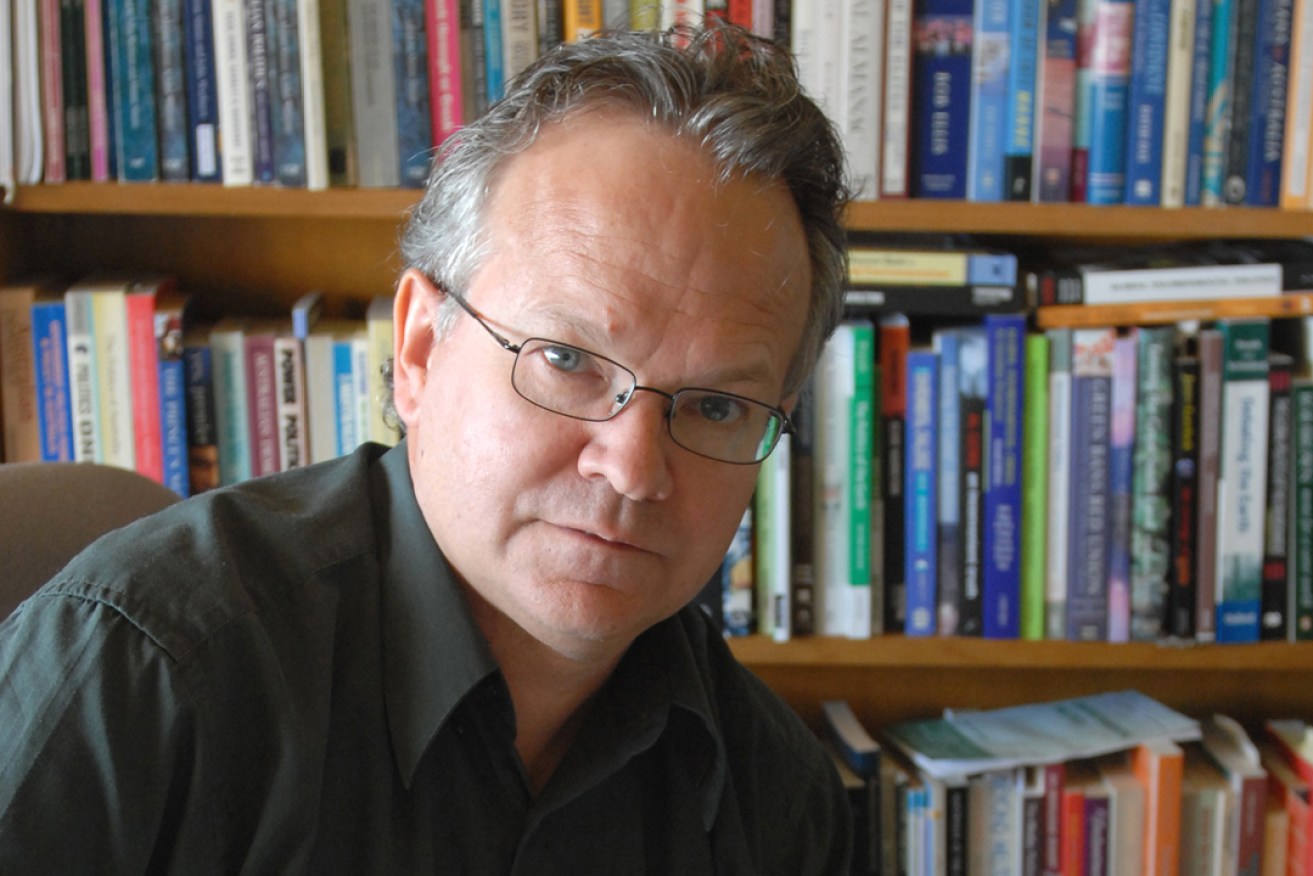
Nuclear waste goes to the top of SA’s agenda
A Flinders politics lecturer and commentator says the South Australian Government should consider a deliberative poll to clarify the issues and choices around any proposal for the State to host a high-grade nuclear waste repository.

Associate Professor Haydon Manning.
Associate Professor Haydon Manning says the Royal Commission into the nuclear energy cycle has identified a multi-billion dollar revenue stream associated with nuclear waste disposal that would be potentially transformative for the State’s economic fortunes.
Several nations that use nuclear power, including Japan, South Korea and Taiwan, have set aside large reserve funds to spend on nuclear waste disposal and an off shore location suits each due to their inherent population densities, geological or geo-political unsuitability…
Results from two recent SA opinion polls on the issue have revealed “much higher levels of popular support than you might expect, and quite clearly a number are undecided and want to hear more,” Associate Professor Manning said.
He said that if the Government wants to move recommendations from the Royal Commission due in May towards policy by the end of the year, there needs to be a public process that impartially describes the pros and cons of the proposal.
Associate Professor Manning said a deliberative poll would involve, for example, randomly selecting groups of approximately 500 voters from the electoral roll across metropolitan and regional SA to attend educational workshops.
“Here their views would be canvassed before and after hearing the presentations, asking questions and discussing the nature of what is a quite complex and highly controversial subject,” Associate Professor Manning said.
In a lecture – Matters Nuclear and Political Irony in South Australia – to be presented on April 12 at Flinders University Victoria Square, Associate Professor Manning says that government would need to take a central role in building and managing a nuclear waste dump.
Associate Manning says Australia’s strong credentials as a safe site for nuclear waste storage were outlined back in the 1990s by an international consortium called Pangea, but any further progress was politically blocked, due in part to the proposal coming from a private corporation
“This was due to what I call the ‘Montgomery F Burns factor’ – the public fear and mistrust of private sector involvement in anything to do with the handling of nuclear fuels,” Associate Professor Manning said.
“Now, 15 years later, we have a government in the driving seat saying ‘What do you think? Is it an option?’”
Ironies and tensions still abound in the nuclear debate, Associate Professor Manning says, not least that the latest proposal has been effectively raised by Premier Jay Weatherill, a figure from Labor’s left wing, which is traditionally opposed even to uranium mining.
“It’s only 10 years since former Labor Premier Mike Rann made populist political capital by railing against the location of low-level radioactive storage in South Australia,” he said.
Associate Professor Manning says many environmentalists who formerly opposed nuclear power have “flipped” on the issue, and now see it as a vital part of the mix of energy sources necessary to replace fossil fuels and stave off runaway climate change.
He said there is also growing recognition that renewables alone are not equal to the task of powering megacities, or of providing the necessary electricity generation for developing societies, most notably China and India.
That position is not shared by the Greens in Australia, and while the nuclear proposal enjoys potential bi-partisan support from the State’s two major parties, Associate Professor Manning said the State Greens are likely to make electoral gains as the likely chief party of opposition.
In discussing the politics of the nuclear debate with his students over the past 20 years, Associate Professor Manning says he also raises the moral issue that came to the fore with the Ranger report of the 1970s – that Australia, once it became involved in uranium exports, has a responsibility to help dispose of nuclear waste.
Associate Professor Manning says he has found that once this issue is aired alongside climate change – “as impartially as possible” – many students who initially come to the debate opposed, or sceptical, tend to shift their position.
Given that Australia is ideally placed to make use of renewables, Associate Professor Manning said that the ultimate irony would be if the funds that flowed to the State if the dump went ahead were used to promote alternative energy, and to put into effect a Playford-like vision to transform the State’s industrial landscape.
“One bold idea might be to harness the revenue stream from hosting the nuclear waste not only to promote research and development of renewables, but also to locate a major international corporation involved with battery manufacturing and R&D in South Australia,” he said.
Associate Professor Manning’s lecture, Matters Nuclear and Political Irony in South Australia, will be held at 6pm on April 12 at Flinders University Victoria Square as part of the Faculty of Social and Behavioural Sciences Professionals’ Lecture Series. If you are interested in attending, please register here.




